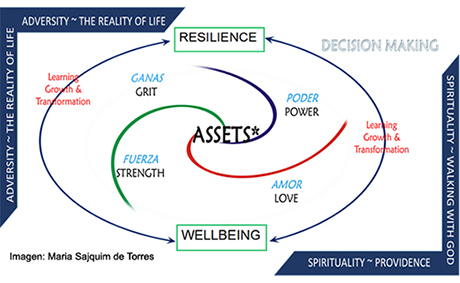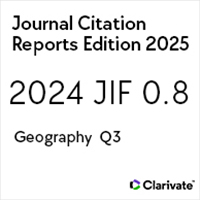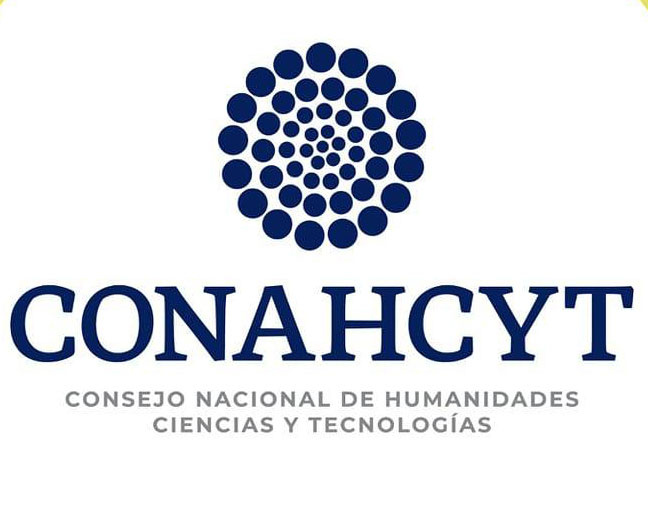Factors promoting resilience among Mexican immigrant women in the United States: Applying a positive deviance approach
Factores que promueven la resiliencia entre las mujeres inmigrantes mexicanas en los Estados Unidos: Aplicación de un enfoque de desviación positiva
https://doi.org/10.21670/ref.1805005
Keywords:
immigrant women, mental health, assets perspective, positive devianceAbstract
This research project used a positive deviance approach to identify Mexican immigrant women (MIW) who have experienced great stress and who have positive mental health indicators in order to determine the factors behind their resilience and coping skills. Signposts, strengths and resources contributing to positive mental health are identified and described. The resilience of participants in this study emerged as a very dynamic phenomenon. A series of internal assets helped these women find meaning, purpose and build resilience. Social networks, families, positive attitudes, and purposeful behaviors determine the strengths and well-being of this group. This may be the first exploration of the mental health assets of MIW. Although the purposive sample in the study limits the generalization of its results, the specificity of its population is a clear point of comparison and reference. The study has implications for the design of health promotion interventions with individuals of Mexican shared ancestry.Resumen
Esta investigación utilizó un enfoque de desviación positiva para identificar mujeres inmigrantes mexicanas (MIM) que han experimentado un gran estrés y que tienen indicadores positivos de salud mental con el fin de determinar los factores detrás de su capacidad de adaptación. Para tal efecto, se identifican y describen los indicadores, fortalezas y recursos que contribuyen a una salud mental positiva. Como resultado se identificó que la resiliencia de las participantes en este estudio emergió como un fenómeno muy dinámico. Las mujeres estudiadas mostraron activos internos que las ayudan a encontrar significado, propósito y desarrollar resiliencia. De manera específica, las redes sociales, familia, actitudes positivas y conductas determinan las fortalezas y el bienestar de este grupo. Esta puede ser la primera exploración de los activos de salud mental de MIM, y si bien la muestra intencional limita la generalización de sus resultados, la especificidad de su población es un punto claro de comparación y referencia, por lo que el estudio es una contribución para el diseño de intervenciones de promoción de la salud con individuos de ascendencia mexicana.References
Abraído-Lanza, A. F., Armbrister, A. N., Flórez, K. R. & Aguirre, A. N. (2006). Toward a Theory-Driven Model of Acculturation in Public Health Research. American Journal of Public Health, 96(8), 1342-1346. http://doi.org/10.2105/AJPH.2005.064980
Ai, A. L., Aisenberg, E., Weiss, S. I. & Salazar, D. (2014). Racial/Ethnic Identity and Subjective Physical and Mental Health of Latino Americans: An Asset Within? American Journal of Community Psychology, 53(1-2), 173-184. http://doi.org/10.1007/s10464-014-9635-5
Alegría, M., Canino, G., Shrout, P. E., Woo, M., Duan, N., Vila, D., … Meng, X. (2008). Prevalence of Mental Illness in Immigrant and Non-Immigrant U.S. Latino Groups. American Journal of Psychiatry, 165(3), 359-369. Retrieved from https://ajp.psychiatryonline.org/doi/pdfplus/10.1176/appi.ajp.2007.07040704
Bachay, J. B. & Cingel, P. A. (1999). Restructuring Resilience: Emerging Voices. Affilia, 14(2), 162-175. http://doi.org/10.1177/08861099922093581
Banerjee, M. M. & Pyles, L. (2004). Spirituality: A Source of Resilience for African American Women in the Era of Welfare Reform. Journal of Ethnic & Cultural Diversity in Social Work, 13(2), 45-70. Retrieved from http://www.tandfonline.com/doi/abs/10.1300/J051v13n02_03#.VIt7nSvF8qQ
Baxter, R., Taylor, N., Kellar, I. & Lawton, R. (2015). Learning From Positively Deviant Wards to Improve Patient Safety: An Observational Study Protocol. BMJ Open, 5(12). http://doi.org/10.1136/bmjopen-2015-009650
Beagan, B. L., Etowa, J. & Thomas, W. (2012). “With God in Our Lives He Gives Us the Strength to Carry On:” African Nova Scotian Women, Spirituality, and Racism-Related Stress. Mental Health, Religion & Culture, 15(2), 103-120. Retrieved from http://www.tandfonline.com/doi/abs/10.1080/13674676.2011.560145#.VIt9PCvF8qQ
Braxton, N. D., Lang, D. L., Sales, J. M., Gina, M., Wingood, G. M. & Diclemente, R. J. (2008). The Role of Spirituality in Sustaining the Psychological Well-Being of HIV-Positive Black Women. Women & Health, 46(2), 113-129. http://dx.doi.org/10.1300/J013v46n02_08
Breslau, J., Aguilar-Gaxiola, S., Kendler, K. S., Su, M., Williams, D. & Kessler, R. C. (2006). Specifying Race-Ethnic Differences in Risk for Psychiatric Disorder in a USA National Sample. Psychological Medicine, 36(1), 57-68. http://doi.org/10.1017/S0033291705006161
Cardoso, J. B. & Thompson, S. (2010). Common Themes of Resilience Among Latino Immigrant Families: A Systematic Review of the Literature. Families in Society: The Journal of Contemporary Social Services, 91(3), 257-265. http://doi.org/10.1606/1044-3894.4003
Casanova, S. (2012). The Stigmatization and Resilience of a Female Indigenous Mexican Immigrant. Hispanic Journal of Behavioral Sciences, 34(3), 375-403. http://doi.org/10.1177/0739986312449584
Casillas, A., Leng, M., Liu, K., Hernandez, A., Shrager, S. & Kanaya, A. (2012). A Long Way From Home: Comparing Mental Health Measures Between Foreign and U.S.-Born Latinos in the Multi-Ethnic Study of Atherosclerosis (MESA). Journal of Health Care for the Poor and Underserved, 23(4), 1719-1732. http://doi.org/10.1353/hpu.2012.0168
Cassaretto, M. & Martínez, P. (2017). Validación de las escalas de bienestar, de florecimiento y afectividad. Pensamiento Psicológico, 15(1), 19-31. Retrieved from http://www.scielo.org.co/pdf/pepsi/v15n1/v15n1a02.pdf
Chavez-Baray, S., Lusk, M. & Sanchez, S. (2015). Secuelas en la salud mental: El rol de la cultura y la resiliencia en migrantes y refugiados mexicanos en la región de El Paso del Norte. In P. Barraza, L. Torres, S. Sanchez & H. Diaz (Eds.), Tácticas y estrategias contra la violencia de género: antología (pp. 219-237). Mexico: FONCA, EON Sociales.
Chirkov, V. (2009). Critical Psychology of Acculturation: What Do We Study and How Do We Study It, When We Investigate Acculturation? International Journal of Intercultural Relations, 33(2), 94-105. http://doi.org/10.1016/j.ijintrel.2008.12.004
Connor, P. (2012). Balm for the Soul: Immigrant Religion and Emotional Well-Being. International Migration, 50(2), 130-157. http://doi.org/10.1111/j.1468-2435.2010.00623.x
Davydov, D. M., Stewart, R., Ritchie, K. & Chaudieu, I. (2010). Resilience and Mental Health. Clinical Psychology Review, 30(5), 479-495. http://doi.org/10.1016/j.cpr.2010.03.003
Diener, E. & Ryan, K. (2008). Subjective Well-Being: A General Overview. South Africa Journal of Psychology, 39(4), 391-406.
Diener, E., Wirtz, D., Tov, W., Kim-Prieto, C., Choi, D., Oishi, S. & Biswas-Diener, R. (2010). New Well-Being Measures: Short Scales to Assess Flourishing and Positive and Negative Feelings. Social Indicators Research, 97(2), 143-156. http://doi.org/10.1007/s11205-009-9493-y
DiFulvio, G. T. (2011). Sexual Minority Youth, Social Connection and Resilience: From Personal Struggle to Collective Identity. Social Science & Medicine, 72(10), 1611-1617. http://doi.org/10.1016/j.socscimed.2011.02.045
Dos Santos, C. M., Sukanya, R. & Harkins, D. (2009). An Exploratory Study of Resilience and Coping Strategies Among Portuguese-Speaking Immigrant Women Survivors of Domestic Violence. American Journal of Psychological Research, 5(1), 81-96.
Farley, T., Galves, A., Dickinson, L. M. & Diaz, M. de J. (2005). Stress, Coping, and Health: A Comparison of Mexican Immigrants, Mexican-Americans, and Non-Hispanic Whites. Journal of Immigrant Health, 7(3), 213-220.
Fellmeth, G., Fazel, M. & Plugge, E. (2017). Migration and Perinatal Mental Health in Women From Low- and Middle-Income Countries: A Systematic Review and Meta-Analysis. BJOG: An International Journal of Obstretics and Gynaecology, 124(5), 742-752.
Flores-Yeffal, N. Y. (2013). Migration-Trust Networks: Social Cohesion in Mexican US-Bound Emigration. United States of America: Texas A&M University Press.
Fox, J. A. & Kim-Godwin, Y. (2011). Stress and Depression Among Latina Women in Rural Southeastern North Carolina. Journal of Community Health Nursing, 28(4), 223-232.
Franzini, L., Ribble, J. C. & Keddie, A. M. (2001). Understanding the Hispanic Paradox. Ethnicity & Disease, 11(3), 496-518.
Garcini, L. M., Murray, K. E., Zhou, A., Klonoff, E. A., Myers, M. G. & Elder, J. (2016). Mental Health of Undocumented Immigrant Adults in the United States: A Systematic Review of Methodology and Findings. Journal of Immigrant and Refugee Studies, 14(1), 1-25.
Grotberg, E. H. (2003). Nuevas tendencias en resiliencia. In A. Melillo & E. Suarez (Comps.), Resiliencia. Descubriendo las propias fortalezas (pp. 19-30). Buenos Aires, Argentina: Paidós. Retrieved from https://es.scribd.com/document/37390977/Grotberg
Heilemann, M. V., Lee, K. A. & Kury, F. S. (2005). Strength Factors Among Women of Mexican Descent. Western Journal of Nursing Research, 27(8), 949-965. http://doi.org/10.1177/0193945905279777
Hone, L., Jarden, A. & Schofield, G. (2014). Psychometric Properties of the Flourishing Scale in a New Zealand Sample. Social Indicators Research, 119(2), 1031-1045. http://doi.org/10.1007/s11205-013-0501-x
Koenig, H. G. (2012). Religion, Spirituality, and Health: The Research and Clinical Implications. International Scholarly Research Network, 2012, 278730. http://doi.org/10.5402/2012/278730
Lake, J. (2012). Spirituality and Religion in Mental Health: A Concise Review of the Evidence. Psychiatric Times, (3), 34-38.
Lusk, M. & Chavez-Baray, S. (2017). Mental Health and the Role of Culture and Resilience in Refugees Fleeing Violence. Environmental and Social Psychology, 2(1), 1-13.
Lusk, M. & Galindo, F. (2017). Strength and Adversity: Testimonies of the Migration. Social Development Issues, 39(1), 11-28.
Lusk, M. & McCallister, J. (2015). Resilience and Trauma Among Mexican Refugees. In E. Moya & S. Chavez. (Eds.), Salud, Género y Empoderamiento (pp. 89-119). Mexico: Editorial EON.
Lusk, M., McCallister, J. & Villalobos, G. (2013). Mental Health Among Mexican Refugees Fleeing Violence and Trauma. Social Development Issues, 35(3), 1-17.
Marsiglia, F. F., Kulis, S., García, H. & Bermudez-Parsai, M. (2011). Hopelessness, Family Stress, and Depression Among Mexican-Heritage Mothers in the Southwest. Health & Social Work, 36(1), 7-18. Retrieved from http://hsw.oxfordjournals.org/content/36/1/7.short
Morales, L., Lara, M., Kington, R., Valdez, R. & Escarce, J. (2002). Socioeconomic, Cultural, and Behavioral Factors Affecting Hispanic Health Outcomes. Journal of Health Care for the Poor and Underserved, 13(4), 477-503.
Ornelas, I. J. & Perreira, K. M. (2011). The Role of Migration in the Development of Depressive Symptoms Among Latino Immigrant Parents in the USA. Social Science and Medicine, 73(8), 1169-1177. http://doi.org/10.1016/j.socscimed.2011.07.002
Palloni, A. & Morenoff, J. D. (2001). Interpreting the Paradoxical in the Hispanic Paradox: Demographic and Epidemiologic Approaches. Annals of the New York Academy of Sciences, 954, 140-174. http://doi.org/10.1111/j.1749-6632.2001.tb02751.x
Parra-Cardona, J. R., Bulock, L. A, Imig, D. R., Villarruel, F. A. & Gold, S. J. (2006). “Trabajando Duro Todos los Días”: Learning From the Life Experiences of Mexican-Origin Migrant Families. Family Relations, 55(3), 361-375. http://doi.org/10.1111/j.1741-3729.2006.00409.x
Pascale, R., Sternin, J. & Sternin, M. (2010). The Power of Positive Deviance: How Unlikely Innovators Solve the World’s Toughest Problems. Massachusetts, United States of America: Harvard Business Review Press.
Perez, G. K. & Cruess, D. (2014). The Impact of Familism on Physical and Mental Health Among Hispanics in the United States. Health Psychology Review, 8(1), 95-127. http://doi.org/10.1080/17437199.2011.569936
Raffaelli, M. & Wiley, A. R. (2013). Challenges and Strengths of Immigrant Latino Families in the Rural Midwest. Journal of Family Issues, 34(3), 347-372. http://doi.org/10.1177/0192513X11432422
Rodriguez, N., Mira, C. B., Paez, N. D. & Myers, H. F. (2007). Exploring the Complexities of Familism and Acculturation: Central Constructs for People of Mexican Origin. American Journal of Community Psychology, 39(1-2), 61-77. http://doi.org/10.1007/s10464-007-9090-7
Rosmarin, D. H., Wachholtz, A. & Ai, A. (2011). Beyond Descriptive Research: Advancing the Study of Spirituality and Health. Journal of Behavioral Medicine, 34(6), 409-413. http://doi.org/10.1007/s10865-011-9370-4
Ruiz, J. M., Steffen, P. & Smith, T. B. (2013). Hispanic Mortality Paradox: A Systematic Review and Meta-Analysis of the Longitudinal Literature. American Journal of Public Health, 103(3), 52-60. http://doi.org/10.2105/AJPH.2012.301103
Ryff, C. D. & Singer, B. (1998). The Contours of Positive Human Health. Psychological Inquiry, 9(1), 1-28.
Sajquim-Torres, M. (1999). Hay que Seguir Adelante: Stress, Trauma and Mental Health Among Maya Immigrants in the United States (Unpublished M.A. Thesis). United Sates of America: Northern Arizona University.
Salgado de Snyder, N. (1987). Factors Associated With Acculturative Stress and Depression Among Mexican Women. Psychology of Women Quarterly, 11(4), 475-488.
Santos, R. (2014). Levantarse y luchar. Mexico: Penguin Random House.
Shaikh, A. & Kauppi, C. (2010). Coping Strategies as a Manifestation of Resilience in the Face of Postpartum Depression : Experiences of Women in Northern Ontario. International Journal of Interdisciplinary Social Sciences, 5(6), 261-273. Retrieved from http://www.iji.cgpublisher.com/product/pub.88/prod.1187
Shaw, A., Joseph, S. & Linley, P. A. (2005). Religion, Spirituality, and Posttraumatic Growth: A Systematic Review. Mental Health, Religion & Culture, 8(1), 1-11. http://doi.org/10.1080/1367467032000157981
Shy, C. M. (1997). The Failure of Academic Epidemiology: Witness for the Prosecution. American Journal of Epidemiology, 145(6), 479-484. https://doi.org/10.1093/oxfordjournals.aje.a009133
Simmons, C. A. & Lehmann, P. (2013). Strengths and Psychotherapy. In P. Lehmann (Ed.), Tools for Strength Based Assessment and Evaluation (pp. 1-17). New York, United States of America: Springer.
Singhal, A. (2013). The Value of Positive Deviations. Monthly Developments Magazine, 17-20.
Smith-Morris, C., Morales-Campos, D., Castaneda, E. A. & Turner, M. (2012). An Anthropology of Familism: On Narratives and Description of Mexican/Immigrants. Hispanic Journal of Behavioral Sciences, 35(1), 35-60.
Smith, L., Webber, R. & DeFrain, J. (2013). Spiritual Well-Being and its Relationship to Resilience in Young People: A Mixed Methods Case Study. SAGE Open, 3(2). http://doi.org/10.1177/2158244013485582
Temane, Q. M. & Wissing, M. P. (2006). The Role of Spirituality as a Mediator for Psychological Well-Being Across Different Contexts. South African Journal of Psychology, 36(3), 582-597. http://doi.org/10.1177/008124630603600309
Torres, J. M. & Wallace, S. P. (2013). Migration Circumstances, Psychological Distress, and Self-Rated Physical Health for Latino Immigrants in the United States. American Journal of Public Health, 103(9), 1619-1627. http://doi.org/10.2105/AJPH.2012.301195
Ungar, M. (2004). A Constructionist Discourse on Resilience: Multiple Contexts, Multiple Realities Among At-Risk Children and Youth. Youth & Society, 35(3), 341-365. http://doi.org/10.1177/0044118X03257030
Ungar, M. (2008). Resilience Across Cultures. British Journal of Social Work, 38(2), 218-235. http://doi.org/10.1093/bjsw/bcl343
Ungar, M. (2013). Resilience, Trauma, Context, and Culture. Trauma, Violence, & Abuse, 14(3), 255-266. http://doi.org/10.1177/1524838013487805
Ungar, M. & Liebenberg, L. (2011). Assessing Resilience Across Cultures Using Mixed Methods: Construction of the Child and Youth Resilience Measure. Journal of Mixed Methods Research, 5(2), 126-149.
Vega, W., Kolody, B. & Valle, J. R. (1986). The Relationship of Marital Status, Confidant Support, and Depression Among Mexican Immigrant Women. Journal of Marriage and Family, 48(3), 597-605. Retrieved from http://www.jstor.org/stable/pdfplus/352046.pdf?&acceptTC=true&jpdConfirm=true
Vega, W., Kolody, B., Valle, R. & Hough, R. (1986). Depressive Symptoms and Their Correlates Among Immigrant Mexican Women in the United States. Social Science and Medicine, 22(6), 645-652.
Viladrich, A. & Abraído-Lanza, A. F. (2009). Religion and Mental Health Among Minorities. In S. Loue & M. Sajatovic (Eds.), Determinants of Minority Mental Health and Wellness (pp. 149-174). http://doi.org/10.1007/978-0-387-75659-2
Viruell-Fuentes, E. A., Miranda, P. Y. & Abdulrahim, S. (2012). More Than Culture: Structural Racism, Intersectionality Theory, and Immigrant Health. Social Science and Medicine, 75(12), 2099-2106. http://doi.org/10.1016/j.socscimed.2011.12.037
































